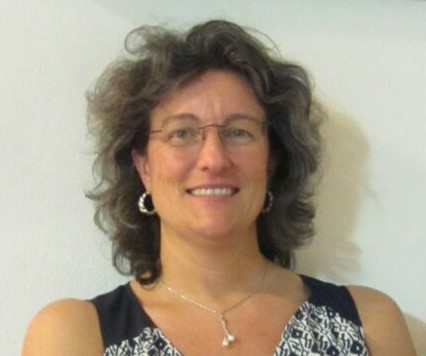Medical libraries-Bernardini
Elena Bernardini, Università di Milano
 Elena Bernardini is the coordinator of the libraries of the medical school at the University of Milan.
Elena Bernardini is the coordinator of the libraries of the medical school at the University of Milan.She is also in charge of the library of Medicine and Pharmacy and the university library at Ospedale Maggiore Policlinico.
She holds a first degree in Pharmaceutical Chemistry and Technology and a Ph.D. in Pharmacology; her scientific interests focus on drug information management and scientific communication. She is reference librarian and she teaches information retrieval and medical and chemical databases searching skills to UG, PG students and whole staff at University of Milan. She was member of the NILDE Library Committee representing universities libraries (2007-2013) and member of Gidif, Rbm (Gruppo Italiano Documentalisti dell'Industria Farmaceutica e degli Istituti di Ricerca Biomedica) catalogue committee (2002-2005 coordinating about fifty medical libraries cooperating in document exchange).
Abstract
Citation indexes and users’ (in)formation needs. The University of Milan biomedical librarians experience
The University of Milan has a 40 years long citation experience. The library of Pharmacy (then library of the Institute of Pharmacological Sciences, director: Prof. Rodolfo Paoletti) purchased the Science Citation Index (SCI) in 1979 (Printed Science Citation Index since 1979-93, CD-Rom in 1994-2000; Journal Citation Reports (JCR) 1981-2000). The online version has been available since 2000 for Web of Science (WOS) and JCR, following the University of Milan subscription. Scopus has been available since 2009, after an agreement between Elsevier and the CRUI (The Conference of Italian University Rectors).
Since its inception, SCI and JCR (which were quite expensive) attracted external users interested in assessing citations and in the Impact Factor (IF). Conversely, the use of such indexes for research evaluation had been minimal among professors or reseachers, until the debut – in 2012 – of the Abilitazione Scientifica Nazionale (ASN; National Scientific Qualification).
At the end of 2001, the Sistema Bibliotecario di Ateneo (SBA; University Library System) activated courses on the use of WOS and JCR. Scopus was introduced in 2010, under the supervision of biomedical librarians.
At the beginning, the majority of participants were only interested in traditional bibliographic searches, with the exception of some researchers who spent some time abroad and some questions on the IF. With the activation of the ASN, the attendees’ profile has radically changed. In addition to the increasing number of participants to the courses on WOS, JCR, and Scopus, their (in)formation needs also greatly changed. Specifically, instead of a mere bibliographic search most users are now interested in bibliometrics, i.e. calculate the H-Index and contemporary H-index, or in solving ambiguities with authors’ names, cleaning up erroneous data, adding missing data, and learning how to use Google Scholar. The average users’ age is decreasing; there are more graduate students and researchers than professors, and participants take more active part to the lessons than before, asking questions about citation analysis and their CV.
Following an analysis of participant satisfaction surveys and according to the most common questions asked by attendees, librarians fine-tuned their programs to greatly increase the proportion of citation database use vs. a traditional bibliographic search.
